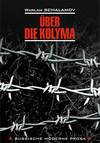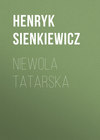Kitabı oku: «With Fire and Sword», sayfa 13
CHAPTER XIII
Next morning early the Cossacks marched out of the Saitch, foot and horse. Though blood had not yet stained the steppes, the war had begun. Regiment followed regiment; just as if locusts, warmed by the spring sun, had swarmed in the reeds of Chertomelik, and were flying to the fields of the Ukraine. In the woods behind Bazaluk the warriors of the horde were waiting, ready for the march. Six thousand chosen men, armed incomparably better than ordinary partisan robbers, composed the contingent which the Khan sent to the Zaporojians and to Hmelnitski. At the sight of them the Cossacks hurled their caps into the air. The guns and muskets rattled. The shouts of the Cossacks, mingling with the "Allah" of the Tartars, struck the dome of heaven. Hmelnitski and Tugai Bey, both under their banners, galloped toward each other on horseback, and exchanged formal greetings.
The order of march was formed with the rapidity peculiar to Tartars and Cossacks; then the troops moved on. The horde occupied both Cossack wings; the centre was formed by Hmelnitski and his cavalry, behind which marched the terrible Zaporojian infantry. Farther in the rear were the gunners, with their cannon; still farther the tabor-wagons, in them camp-servants and stores of provisions; finally, the herdsmen, with reserve herds and cattle.
After they had passed the forest of Bazaluk the regiments flowed out on the level country. The day was clear, the field of heaven unspotted by a cloud. A light breeze blew from the north to the sea; the sun played on the lances, and on the flowers of the plain. The primeval steppes were spread before the Zaporojians like a boundless sea, and at this sight joy embraced the Cossack hearts. The great red standard, with the archangel, was inclined repeatedly in greeting to the native steppe; and following its example, every bunchuk and regimental standard was lowered. One shout sprang from all breasts.
The regiments deployed freely on the plain. The drummers and buglers went to the van of the army; the drums thundered, trumpets and bugles sounded, and in concert with them a song, sung by thousands of voices, reverberated through the air and the earth, -
"O steppes, our native steppes,
Ye are painted with beautiful flowers,
Ye are broad as the sea!"
The teorbanists dropped the reins, and bending back in the saddles, with eyes turned to the sky, struck the strings of their teorbans; the cymbalists, stretching their arms above their heads, struck their brazen disks; the drummers thundered with their kettledrums; and all these sounds, together with the monotonous words of the song and the shrill whistle of the tuneless Tartar pipes, mingled in a kind of mighty note, wild and sad as the Wilderness itself. Delight seized all the regiments; the heads bent in time with the song, and at last it seemed as if the entire steppe, infected with music, trembled together with the men and the horses and the standards.
Frightened flocks of birds rose from the steppe and flew before the army like another army, – an army of the air. At times the song and music stopped; then could be heard the rustling of banners, the tramping and snorting of horses, the squeak of the tabor-wagons, – like the cry of swans or storks.
At the head of the army, under a great red standard and the bunchuk, rode Hmelnitski, in a red uniform, on a white horse, holding a gilded baton in his hand.
The whole body moved on, slowly marching to the north, covering like a terrible wave the rivers, groves, and grave-mounds, filling with its noise and sound the space of the steppe.
But from Chigirin, from the northern rim of the Wilderness, there moved against this wave a wave of the armies of the crown, under the leadership of young Pototski. Here the Zaporojians and the Tartars went as if to a wedding, with a joyful song on their lips; there the serious hussars advanced in grim silence, going unwillingly to that struggle without glory. Here, under the red banner, an old experienced leader shook his threatening baton, as if certain of victory and vengeance; there in front rode a youth with thoughtful countenance, as if knowing, his sad and approaching fate. A great expanse of steppe still divided them.
Hmelnitski did not hurry, for he calculated that the farther young Pototski went into the Wilderness, the farther he went from the two hetmans, the more easily could he be conquered. Meanwhile new fugitives from Chigirin, Povolochi, and all the shore towns of the Ukraine gave daily increase to the Zaporojian power, bringing also news from the opposite camp. From them Hmelnitski learned that the old hetman had sent his son with only two thousand cavalry by land and six thousand Cossacks, with one thousand German infantry in boats by the Dnieper. Both these divisions were ordered to maintain communication with each other, but the order was violated from the first day; for the boats, borne on by the current of the Dnieper, went considerably in advance of the hussars going along the shore, whose march was greatly delayed by the crossings at all the rivers falling into the Dnieper.
Hmelnitski, wishing that the distance between them should be increased still more, did not hurry. On the third day of his march he disposed his camp around Komysha Water, and rested.
At that time the scouts of Tugai Bey brought informants, – two dragoons who just beyond Chigirin had escaped from the camp of Pototski. Hurrying on day and night, they had succeeded in getting considerably in advance of their camp. They were brought immediately to Hmelnitski.
Their account confirmed what was already known to Hmelnitski concerning the forces of young Stephen Pototski; but they brought him intelligence, besides, that the leaders of the Cossacks sailing down in the boats with the German infantry were old Barabash and Krechovski.
When he heard the last name, Hmelnitski sprang up. "Krechovski? the commander of the registered Pereyasláv Cossacks?"
"The same, serene hetman!" answered the dragoons.
Hmelnitski turned to the colonels surrounding him. "Forward!" commanded he, with thundering voice.
Less than an hour later the tabor was moving on, though the sun was already setting and the night did not promise to be clear. Certain terrible reddish clouds rolled along on the western side of the heavens, like dragons or leviathans, and approached one another as if wishing to begin battle.
The tabor turned to the left, toward the bank of the Dnieper. The host marched quietly, without songs, without noise of drums or trumpets, and as quickly as the grass permitted, which was so luxuriant in that neighborhood that the regiments buried in it were lost from view at times, and the many-colored flags seemed to sail along the steppe. The cavalry beat a road for the wagons and the infantry, which, advancing with difficulty, soon fell considerably in the rear.
Night covered the steppes. An enormous red moon rose slowly in the heavens, but, hidden repeatedly by the clouds, flamed up and was quenched like a lamp smothered by the blowing of the wind.
It was well after midnight when, to the eyes of the Cossacks and the Tartars, black gigantic masses seemed outlined clearly on the dark background of the sky. These were the walls of Kudák.
Scouts, hidden by darkness, approached the fortress as carefully and quietly as wolves or night-birds. And now perhaps a surprise for the sleeping fortress!
But suddenly a flash on the ramparts rent the darkness. A terrible report shook the rocks of the Dnieper, and a fiery ball, leaving a circle of sparks in the air, fell among the grass of the steppe. The gloomy cyclops Grodzitski gave notice that he was watching.
"The one-eyed dog!" muttered Tugai Bey to Hmelnitski; "he sees in the night."
The Cossacks avoided the fortress and marched on. They could not think of taking it at a time when the armies of the crown were marching against them. But Grodzitski fired after them from his cannon till the walls of the fortress trembled; not so much to injure them-for they passed at a good distance-as to warn the troops sailing down the Dnieper, who at that time might be not far away.
But the thunder of the guns of Kudák found echo first of all in the heart and hearing of Pan Yan. The young knight, brought by the command of Hmelnitski with the Cossack tabor, became seriously ill on the second day. In the fight at Hortitsa he had not received, it is true, a mortal wound, but he had lost so much blood that little life was left in him. His wounds, dressed in Cossack fashion by the old inspector of weights and measures, opened; fever attacked him, and that night he lay half senseless in a Cossack telega, unconscious of God's world.
The cannon of Kudák first roused him. He opened his eyes, raised himself in the wagon, and began to look around. The Cossack tabor glided along in the darkness, like a circle of dream figures, but the fortress roared and was lighted with rosy smoke; fiery balls sprang along the steppe, snapping and barking, like infuriated dogs. At this sight such sadness and sorrow seized Skshetuski that he was ready to die on the spot, if he could only go even in spirit to his friends. War! war! and he in the camp of the enemy, disarmed, sick, unable to rise from the wagon! The Commonwealth in danger, and he not flying to save it! There in Lubni the troops are surely moving. The prince, with lightning in his eyes, is flying before the ranks; and on whatever side he turns his baton, three hundred lances strike like three hundred thunderbolts. Here a number of well-known faces begin to appear before the eyes of the lieutenant. Little Volodyovski, at the head of his dragoons, with his thin sabre in hand, – the king of swordsmen; whoever crosses weapons with him is as if in the tomb. There Pan Podbipienta raises his executioner's snatch-cowl! Will he cut off the three heads, or will he not? The priest Yaskolski waves the banners, and prays with his hands lifted to heaven. But he is an old soldier; therefore, unable to restrain himself, he thunders out at times, "Strike! kill!" Mailed riders incline half-way to the horse's ear. The regiments rush on, open their ranks, and close. Battle and tumult are there!
Suddenly the vision changes. Before the lieutenant stands Helena, pale, with dishevelled hair; and she cries: "Save me, for Bogun pursues!"
Skshetuski tears himself from the wagon, till a voice-but a real one-calls to him: "Lie down, child, or I will bind you."
That was the essaul of the tabor, Zakhar, whom Hmelnitski had commanded to guard the lieutenant as the eye in his head. He puts him back in the wagon, covers him with a horse-skin, and asks: "What's the matter with you?"
Now Skshetuski has perfect presence of mind. The visions vanish. The wagons move along the very bank of the Dnieper. A cool breeze is blowing from the river, and the night is growing pale. Water-birds have begun their morning noise.
"Listen, Zakhar! have we passed Kudák already?" asked Skshetuski.
"We have," answered the Zaporojian,
"And where are you going?"
"I don't know. There will be a battle, they say; but I don't know."
At these words Skshetuski's heart beat joyfully. He had supposed that Hmelnitski would besiege Kudák, and with that the war would begin. Meanwhile the haste with which the Cossacks pushed on permitted the inference that the armies of the Crown were already near, and that Hmelnitski was passing the fortress so as not to be forced to give battle under its cannon.
"I may be free to-day," thought the lieutenant, and raised his eyes to heaven in thanks.
CHAPTER XIV
The thunder of the guns of Kudák was heard also by the forces descending in boats under the command of old Barabash and Krechovski. These forces were composed of six thousand registered Cossacks, and one of picked German infantry led by Colonel Hans Flick.
Pan Nikolai Pototski, the hetman, hesitated long before he sent the Cossacks against Hmelnitski; but since Krechovski had an immense influence over them, and Pototski trusted Krechovski absolutely, he merely commanded the Cossacks to take the oath of allegiance, and sent them off in the name of God.
Krechovski was a soldier full of experience and of great reputation in previous wars. He was a client of the Pototskis, to whom he was indebted for everything, – his rank of colonel, his nobility, which they obtained for him in the Diet, and finally for broad lands situated near the confluence of the Dniester and Lada, which he held for life. He was connected, therefore, by so many bonds with the Commonwealth and the Pototskis, that a shadow of a suspicion could not rise in the mind of the hetman. Krechovski was, besides, a man in his best days, for he was scarcely fifty years old, and a great future was opening before him in the service of the country. Some were ready to see in him the successor of Stephen Hmeletski, who, beginning his career as a simple knight of the steppe, ended it as voevoda of Kieff and senator of the Commonwealth. It was for Krechovski to advance by the same road, along which he was impelled by bravery, a wild energy, and unbridled ambition, equally eager for wealth and distinction. Through this ambition he had struggled a short time before for the starostaship of Lita; and when at last Pan Korbut received it, Krechovski buried the disappointment deep in his heart, but almost fell ill of envy and mortification. This time fortune seemed to smile on him again; for having received from the hetman such an important military office, he could consider that his name would reach the ears of the king; and that was important, for afterward he had only to bow to receive the reward, with the words dear to the heart of a noble: "He has bowed to us and asked that we grant him; and we remembering his services, do grant, etc." In this way were wealth and distinction acquired in Russia; in this way enormous expanses of the empty steppe, which hitherto had belonged to God and the Commonwealth, passed into private hands; in this way a needy stripling grew to be a lord, and might strengthen himself with the hope that his descendants would hold their seats among senators.
Krechovski was annoyed that in the office committed to him he must divide authority with Barabash; still it was only a nominal division. In reality, the old colonel of Cherkasi, especially in the latter time, had grown so old and worn that his body alone belonged to this earth; his mind and soul were continually sunk in torpidity and lifelessness, which generally precede real death. At the beginning of the expedition he roused up and began to move about with considerable energy, as if at the sound of the trumpet the old soldier's blood had begun to course more vigorously within him, for he had been in his time a famous Cossack and a leader in the steppe; but as soon as they started the plash of the oars lulled him, the songs of the Cossacks and the soft movement of the boats put him to sleep, and he forgot the world of God. Krechovski ordered and managed everything. Barabash woke up only to eat; having eaten his fill, he inquired, as was his custom, about this and that. He was put off with some kind of answer; then he sighed and said, -
"I should be glad to die in some other war, but God's will be done!"
Connection with the army of the crown marching under Stephen Pototski was severed at once. Krechovski complained that the hussars and the dragoons marched too slowly, that they loitered too long at the crossings, that the young son of the hetman had no military experience; but with all that he gave orders to move on.
The boats moved along the shores of the Dnieper to Kudák, going farther and farther from the armies of the crown.
At last one night the thunder of cannon was heard. Barabash slept without waking. Flick, who was sailing ahead, entered the scout-boat and repaired to Krechovski.
"Colonel," said he, "those are the cannon of Kudák! What are we to do?"
"Stop your boats. We will spend the night in the reeds."
"Apparently Hmelnitski is besieging the fortress. In my opinion we ought to hurry to the relief."
"I do not ask you for opinions, but give orders. I am the commander."
"But, Colonel-"
"Halt and wait!" said Krechovski. But seeing that the energetic German was twitching his beard and not thinking of going away without a reason, he added more mildly: "The castellan may come up to-morrow morning with the cavalry, and the fortress will not be taken in one night."
"But if he does not come up?"
"Well, we will wait even two days. You don't know Kudák. They will break their teeth on the walls, and I will not go to relieve the place without the castellan, for I have not the right to do so. That is his affair."
Every reason seemed to be on Krechovski's side. Flick therefore insisted no longer, and withdrew to his Germans. After a while the boats began to approach the right bank and push into the reeds, that for a width of more than forty rods covered the river, which had spread widely in that part. Finally the plash of oars stopped; the boats were hidden entirely in the reeds, and the river appeared to be wholly deserted. Krechovski forbade the lighting of fires, singing of songs, and conversation. Hence there fell upon the place a quiet unbroken save by the distant cannon of Kudák.
Still no one in the boats except Barabash slept. Flick, a knightly man and eager for battle, wished to hurry straight to Kudák. The Cossacks asked one another in a whisper what might happen to the fortress. Would it hold out or would it not hold out? Meanwhile the noise increased every moment. All were convinced that the castle was meeting a violent assault.
"Hmelnitski isn't joking; but Grodzitski isn't joking, either," whispered the Cossacks. "What will come tomorrow?"
Krechovski was probably asking himself the very same question, as, sitting in the prow of his boat, he fell into deep thought. He knew Hmelnitski intimately and of old. Up to that time he had always considered him a man of uncommon gifts, to whom only a field was wanting to soar like an eagle; but now Krechovski doubted him. The cannon thundered unceasingly; therefore it must be that Hmelnitski was really investing Kudák.
"If that is true," thought Krechovski, "he is lost. How is it possible, having roused the Zaporojians and secured the assistance of the Khan, having assembled forces such as none of the Cossack leaders has hitherto commanded, instead of marching with all haste to the Ukraine, rousing the people and attaching to himself the town Cossacks, breaking the hetmans as quickly as possible, and gaining the whole country before new troops could come to its defence, that he, Hmelnitski, an old soldier, is storming an impregnable fortress, capable of detaining him for a whole year? And is he willing that his best forces should break themselves on the walls of Kudák, as a wave of the Dnieper is dashed on the rocks of the Cataracts? And will he wait under Kudák till the hetmans are reinforced and surround him, like Nalivaika at Solonitsa?"
"If he does, he is a lost man," repeated Krechovski once more. "His own Cossacks will give him up. The unsuccessful assault will cause discontent and disorder. The spark of rebellion will go out at its very birth, and Hmelnitski will be no more terrible than a sword broken at the hilt. He is a fool! Therefore," thought Krechovski, "to-morrow I will land my Cossacks and Germans on the bank, and the following night will fall on him unexpectedly, when he is weakened by assaults. I will cut the Zaporojians to pieces, and throw down Hmelnitski bound at the feet of the hetman. It is his own fault, for it might have been otherwise."
The unbridled ambition of Krechovski soared on the wings of a falcon. He knew well that young Pototski could not arrive on the following night by any possibility. Who, then, was to sever the head of the hydra? Krechovski! Who was to put down the rebellion which might wrap the whole Ukraine in a terrible conflagration? Krechovski! The old hetman might be angry for a while that this had taken place without the participation of his son; but he would soon get over that, and meanwhile all the rays of glory and the favors of the king would descend on the conqueror's head. No! It would be necessary, however, to divide the glory with old Barabash and with Grodzitski.
Krechovski scowled darkly; but suddenly his face grew bright. "They will bury that old block Barabash in the ground to-morrow or next day. Grodzitski, if he can only remain at Kudák to frighten the Tartars from time to time with his cannon, will ask for no more. Krechovski alone will remain. If he can only become hetman of the Ukraine!"
The stars twinkled in the sky, and it appeared to the colonel that those were the jewels in his baton; the wind sounded in the reeds, and it seemed to him the rustling of the hetman's standard. The guns of Kudák thundered unceasingly.
"Hmelnitski has given his throat to the sword," continued the colonel in thought, "but that is his own fault. It might have been otherwise. If he had gone straight to the Ukraine, it might have been otherwise. There all is seething and roaring; there lies powder, only waiting for a spark. The Commonwealth is powerless, but it has forces in the Ukraine; the king is not young, and is sickly. One battle won by the Zaporojians will bring incalculable results."
Krechovski covered his face with his hands, and sat motionless. The stars came down nearer and nearer, and settled gradually on the steppe. The quail hidden in the grass began to call. Soon the day would break.
At last the meditations of the colonel became strengthened into a fixed purpose. Next day he would strike Hmelnitski and grind him in the dust. Over his body he would go to wealth and dignities. He would be the instrument of punishment in the hands of the Commonwealth, its defender, in the future its dignitary and senator. After victory over the Zaporojians and the Tartars they would refuse him nothing.
Still, they had not given him the starostaship of Lita. When he remembered this, Krechovski clenched his fists. They had not given him this, in spite of the powerful influence of his protectors the Pototskis, in spite of his military services, simply because he was a new man and his rival drew his origin from princes. In that Commonwealth it was not enough to be a noble, it was necessary to wait till that nobility was covered with must like old wine, till it was rusty like iron.
Hmelnitski alone could introduce a new order of things, to which the king himself would become favorable; but the unfortunate man had preferred to beat out his brains against the walls of Kudák.
The colonel gradually grew calm. They had refused him the starostaship, – what of that? They would strive all the more to recompense him, especially after his victory, – after quenching the rebellion, after freeing the Ukraine from civil war, yes, the whole Commonwealth! They would refuse him nothing; then he would not need even the Pototskis.
His drowsy head inclined upon his breast, and he fell asleep, dreaming of starostaships, of dignities, of grants from the king and the Diet.
When he woke it was daybreak. In the boats all were still sleeping. In the distance the waters of the Dnieper were gleaming in a pale, fugitive light. Around them reigned absolute stillness. It was the stillness that roused him. The cannon of Kudák had ceased to roar.
"What is that?" thought Krechovski. "The first attack is repulsed, or maybe Kudák is taken?"
But that was unlikely. No; the beaten Cossacks were lying somewhere at a distance from the fortress, licking their wounds, and the one-eyed Grodzitski was looking at them through the port-hole, aiming his guns anew. To-morrow they would repeat the storm, and again break their teeth. The day had now come. Krechovski roused the men in his own boat, and sent a boat for Flick. Flick came at once.
"Colonel," said Krechovski, "if the castellan does not come before evening, and if the storm is repeated during the night, we will move to the relief of the fortress."
"My men are ready," answered Flick.
"Issue powder and balls to them."
"I have done so."
"We land during the night and go by the steppe in the greatest quiet. We will come upon them with a surprise."
"Gut! sehr gut! But mightn't we go on a little in the boats? It is twenty miles to the fortress, – rather far for infantry."
"The infantry will mount Cossack horses."
"Gut! sehr gut!"
"Let the men lie quietly in the reeds, not go on shore; make no noise, kindle no fires, for smoke would betray us. We must not be revealed."
"There is such a fog that the smoke will not be seen."
Indeed the river, the inlet overgrown with reeds, in which the boats were hidden, and the steppe were covered as far as the eye could see with a white, impenetrable fog. But it was only the beginning of day; so the fog might rise and uncover the expanse of the steppe.
Flick departed. The men in the boats woke gradually. Krechovski's commands to keep quiet and take the morning meal without tumult were made known. No person going along the shore or sailing in the middle of the river would have even imagined that in the adjoining thicket several thousand men were hidden. The horses were fed from the hand, so that they should not neigh. The boats, covered with fog, lay tied up in the reeds. Here and there only passed a small two-oared boat carrying biscuits and commands; with this exception, the silence of the grave reigned everywhere.
Suddenly in the reeds, rushes, and shore-grass all around the inlet were heard strange and very numerous voices, calling, -
"Pugú! pugú!"
Then quiet. "Pugú! pugú!"
And again silence, as if those voices, calling on the banks, waited for an answer.
But there was no answer. The calling sounded a third time, but more quickly and impatiently.
"Pugú! pugú!"
This time from the side of the boats was heard in the middle of the fog the voice of Krechovski, -
"But who is there?"
"A Cossack from the meadows."
The hearts of the Cossacks hidden in the boats beat unquietly. That mysterious call was well known to them. In that manner the Zaporojiana made themselves known to one another in their winter quarters; in that way in time of war they asked to conference their brothers, the registered and town Cossacks, among whom were many belonging in secret to the Brotherhood.
The voice of Krechovski was heard again; "What do you want?"
"Bogdan Hmelnitski, the Zaporojian hetman, announces that his cannon are turned on the Poles."
"Inform the Zaporojian hetman that ours are tamed to the shore."
"Pugú! Pugú!"
"What more do you want?"
"Bogdan Hmelnitski, the Zaporojian hetman, invites his friend Colonel Krechovski to a conference."
"Let him give hostages."
"Ten kuren atamans."
"Agreed."
That moment the shores of the inlet bloomed with Zaporojians as if with flowers; they stood up from the grass in which they had been hidden. From the steppe approached their cavalry and artillery, tens and hundreds of their banners, flags, and bunchuks. They marched with singing and beating of kettledrums. All this was rather like a joyful greeting than a collision of hostile forces.
The Cossacks on the river answered with shouts. Meanwhile boats came up bringing the kuren atamans. Krechovski entered one of the boats and went to the shore. There a horse was given him, and he was conducted immediately to Hmelnitski.
Seeing him, Hmelnitski removed his cap, and then greeted him cordially.
"Colonel," said he, "my old friend and comrade! When the hetman of the crown commanded you to seize me and bring me to the camp, you did not do it, but you warned me so that I might save myself by flight; for that act I am bound to you in thankfulness and brotherly love."
While saying this he stretched out his hand kindly; but the swarthy face of Krechovski remained cold as ice. "Now, therefore, after you have saved yourself, worthy hetman, you excite rebellion!"
"I go to ask reparation for the wrongs inflicted on myself, on you, on the whole Ukraine, with the charter of Cossack rights granted by the king in my hand, and with the hope that our merciful sovereign will not count it evil in me."
Krechovski looked quickly into the eyes of Hmelnitski, and asked with emphasis: "Have you invested Kudák?"
"I? Do you think I have lost my mind? I passed Kudák without a shot, though the old blind man celebrated it with guns. I was hurrying not to Kudák, but to the Ukraine, and to you, my old friend and benefactor."
"What do you wish, then, of me?"
"Come a little way in the steppe, and we will talk."
They spurred their horses, and rode on. They remained about an hour. On returning, the face of Krechovski was pale and terrible. He took quick farewell of Hmelnitski, who said, -
"There will be two of us in the Ukraine, and above us the king, and no man else."
Krechovski turned to the boats. Old Barabash, Flick, and the elders waited for him with impatience. "What's going on? What's going on?" he was asked on every side.
"Come out on the shore!" answered Krechovski, with a commanding voice.
Barabash raised his sleepy lids; a certain wonderful fire was gleaming in his eyes. "How is that?" asked he.
"Come to the shore; we yield!"
A wave of blood rushed to the pale and faded face of Barabash. He rose from the kettle on which he had been sitting, straightened himself up, and suddenly that bent and decrepit old man was changed into a giant full of life and power.
"Treason!" roared he.
"Treason!" repeated Flick, grasping after the hilt of his rapier.
But before he could draw it Krechovski's sabre whistled, and with one blow Flick was stretched on the ground. Then Krechovski sprang into the scout-boat standing there, in which four Zaporojians were sitting with oars in their hands, and cried: "To the boats!"
The scout-boat shot on like an arrow. Krechovski, standing in the centre of it, with his cap on his bloody sabre, his eyes like flames, cried with a mighty voice, -
"Children, we will not murder our own. Long life to Hmelnitski, the Zaporojian hetman!"











